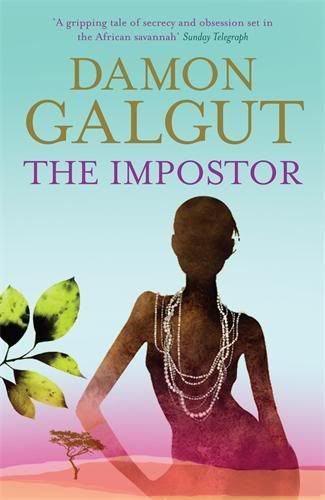 Damon Galgut has written another potent story of moral choices and who we are as a function of our past in The Imposter.
Damon Galgut has written another potent story of moral choices and who we are as a function of our past in The Imposter. When Blom starts to speak, his voice is very low; he clears his throat and begins again, and this time the narrative is clearer, though the words still unwind in a colourless monotone. Adam's eyes slide downward, to Blom's hand, still splayed out on his knee. He is listening, every word goes through him, but it's as if what he's hearing takes on form. He has never noticed the physical qualities of Blom's hand before: the thick, square tips of the fingers with their yellow stains, the whorl of grey hair on the back of the first joint. The nails, with a half-moon of dirt under their ragged ends. The vein pulsing thickly in the wrist. The edge of an old tattoo, somebody's name perhaps, showing from under the sleeve. And while Blom tells him who he is and what he's done, Adam thinks: with that hand. You did it all with that hand.
and...
He sees Canning's father's cottage behind it, up against the base of the mountains. there are human figures moving down there, neutered and nameless; one of them might be Baby. And for a few seconds, the height from which he views this picture becomes his own. This is how it must be for a god to look at the earth: no connection, no conflict, no yearning for things to be otherwise. No emotional confusion to cloud the mind. For just that moment, he is an empty eye; a perfect witness.
It comes to him that time is the great, distorting lens. Up close, human life is a catalogue of pain and power, but when enough time has gone past, everything ceases to matter. Nothing that people do to each other will carry any moral charge eventually. History is just like the ground down there: something neutral and observable, a pattern, a shape. Murder and rape and pillage - in the end, they are just colourful details in a story.
Not that I confuse this opinion from the mind of the character Adam with the author's, far from it. This story matters, stories matter, because human pain and power move us. Galgut tells a tale that, because of the details - the dirt under a man's fingernails, the view from a helicopter - makes its content important. This is not simply because morals are something we should be interested in, but because the characters and what is happening grip us and, by extension, so do their choices. In this way Galgut's book reminds me of Dostoevsky, not in length, his story telling is lean, but because the consequences Adam faces temporarily become my consequences and, therefore important to me. This is a rich and involving read. Here is my other post on The Imposter.
















No comments:
Post a Comment